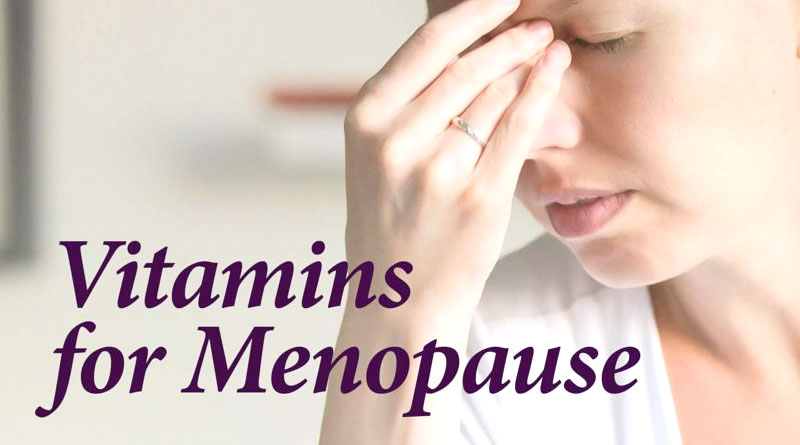Menopause without Medicine (Pt 2)
As affirmed in my last column, menopause need not be an intractable hurdle in a woman’s life – a relatively smooth transition can be achieved. Loss of estrogen loss can be combatted by using key foods and herbal remedies – teas, tinctures and other supplements.
Menopause without Medicine (Pt 1) – CLICK HERE
Vitamin E, a hormone normaliser, has been shown to be the most effective treatment for hot flashes and mood swings. Start with 100 IU, and gradually increase dosage up to 1200 IU daily over a few weeks or months. Bioflavonoids, taken with 500mg to 2000mg of vitamin C, relieve hot flashes and vaginal dryness.
Guards Against the Formation of Nitrosamines
Vitamin C is a potent antioxidant and free radical fighter. A general detoxifier, it’s crucial to have in your anticancer arsenal. More specifically, it guards against the formation of nitrosamines – potent carcinogens created from nitrates and nitrites found in smoked, pickled and salt-cured and charred and canned meats and artificial sweeteners. Rich sources of Vitamin C include raw green peppers, orange juice, broccoli, cantaloupe, strawberries, potato and raw tomatoes.
Vitamin E, along with Vitamin C, beta carotene and selenium, are known to protect our cells, preventing oxidation of LDL cholesterol and formation of plaque and deterioration of the blood vessel linings. In plant form, selenium is found in brown rice and oatmeal, and, in higher quantities, in eggs, chicken and fish and shell food. However, plant sources are more recommended to avoid negative inflammatory effects.
With deficiency in B Vitamins (B-6, B-12 and folic acid), the amino acid methionine is converted to homocysteine, which increases risk of heart disease. Magnesium (500mg) also reduces high blood pressure and the incidence of arrhythmia and sudden death by more than 50 per cent. Calcium is crucial to maintaining brain, blood and muscle functions, and when stores are depleted, the body draws what it needs from the bones. To safeguard again this, ensure you take 1000 to 1500 mg daily.

Fibre, abundantly occurring in a variety of peas and beans, carrots, corn, prunes, sweet potatoes, zucchini, bananas, apples pears and oranges, maintains healthy blood pressure and promotes the excretion of estrogen and fat absorption, thus reducing estrogen production. There is a not so well known link between constipation and breast cancer, so, increasing consumption of insoluble fibre (30 – 40 g daily) from bran and whole grains – and to a lesser extent fruits and vegetables – will encourage regular bowel movements and greatly reduce this risk.
While animal protein increases cholesterol levels, soy proteins (beans, tofu and related meat replacement products) are among the phytosterols group of plant chemicals, and these inhibit cholesterol absorption, reducing blood lipid levels. Including more plant based protein will improve cholesterol levels.
A diet high in animal protein and, particularly, red meat, is also associated with breast cancer and heart disease, and so should be avoided. Clinical studies show that tofu, derived from soya beans (non GMO variety) has the highest natural compounds for treating hot flashes. Vegetarian women get about 345mg to 400mg of phytosterol daily, as opposed to those consuming a more Western meat-oriented diet.
DHEA, a steroid hormone produced by the adrenal glands, significantly helps prevent and treat many diseases, and is available in tablet form (25-50 mg recommended daily).
Essential fatty acids (EFA) are vital for the functioning of nerve cells, cellular membranes and hormone-like substances. Our bodies cannot manufacture them, but they normalise the menstrual cycle. Sprinkle one to two tablespoons of borage, black cumin, black currant seed, flaxseed or evening primrose oil on salads or vegetables, or supplement with two to eight capsules daily. Be sure to store in the refrigerator.
Fish and fish oils, which are omega-3 fatty acids, are highly beneficial in lowering blood pressure and cholesterol, improving blood flow and preventing blood platelets. Heart disease is rare among the Inuit and Japanese populations with their customary diets of whale and seal fat and fish.
Active ingredients are eichosapentaenoic acid (EPA) and docasahexaenoic acid (DHA), with the former originating in plants and algae. However, these do not equal the quantities found in fish, with the best sources being fatty fish – salmon, mackerel, tuna shark and herring. To guard against deficiency, menopausal women can supplement with 100 to 300mg of EPA or omega-3 fatty acid capsules.
Herbal Elixirs
Certain herbs that are natural sources of estrogen act on the pituitary and adrenal glands – fenugreek, gotu kola, sarsaparilla and licorice root, among others. You can make an infusion with any of these with a mineral rich herb such as dandelion leaves, alfalfa or borage. Ginseng, a rejuvenating anti-stress herb, is effective for chronic sweating, and vitex, also known as chaste tree or chaste berry, is esteemed as the herb of choice for all menopause symptoms.

Natural progesterone is extracted from wild yam, and is a recommended natural alternative to Hormone Replacement therapy (HRT) without the side effects because it is absorbed through the skin, avoiding metabolism by the liver, and is closer to the molecular structure of the progesterone in a woman’s body.
Since HRT can increase the risk of breast cancer, unless natural therapies are ineffective, it’s best to leave this alone. When opting for drug therapy, be sure to use the lowest possible dose for the shortest time.
In our third and final part, we look at skin care needs and personality factors during menopause.
Women Over 40, Natural Anti Aging Shortcuts For You – CLICK HERE




